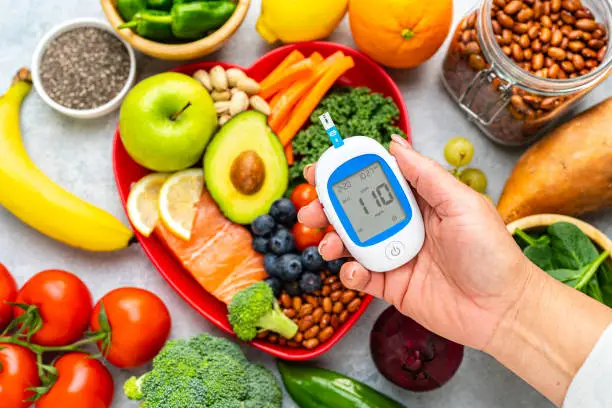Have you ever felt bloated after a meal, experienced mysterious stomach cramps, or been hit by fatigue for no apparent reason? While you might chalk it up to stress or a heavy lunch, your gut might be trying to tell you something far more important. Digestion isn’t just about breaking down food; it’s the cornerstone of your overall health. It influences your immune system, your mood, your energy levels, and even your skin.
In a world increasingly dependent on fast foods and quick fixes, our digestive systems often pay the price. But here’s the good news: improving your digestion doesn’t require expensive supplements, trendy diets, or miracle pills. Nature has equipped us with everything we need to take care of our gut—if we only pay attention.
This article dives deep into the world of digestion, exploring what it is, why it matters, and how you can naturally fine-tune it to unlock better health, sharper mental clarity, and more energy than you thought possible.
The Incredible Journey of Digestion
Before we discuss how to improve digestion naturally, it helps to understand the marvel that is your digestive system. Digestion starts the moment you smell or think about food. Your mouth waters in anticipation, and enzymes begin forming in your saliva. From there, every bite you take embarks on a complex journey through your esophagus, stomach, small intestine, and large intestine.
Your stomach uses acids and enzymes to break down food into a slurry, which then moves into the small intestine, where nutrients are absorbed. The large intestine follows, absorbing water and forming waste. All of this happens seamlessly—unless something disrupts the system.
Common disruptors include poor dietary choices, stress, lack of sleep, dehydration, and sedentary lifestyles. These can lead to issues like constipation, bloating, acid reflux, indigestion, and even chronic conditions like irritable bowel syndrome (IBS). Fortunately, nature provides an arsenal of tools to keep things running smoothly.
Why Natural Matters
Modern medicine has made incredible strides, but when it comes to gut health, synthetic interventions often provide only temporary relief. Antacids, laxatives, and antibiotics can help in emergencies, but frequent use can upset the delicate balance of your gut flora—the trillions of bacteria that live in your digestive tract and play a crucial role in your health.
Natural approaches, by contrast, work with your body rather than against it. They aim to restore balance, promote healing, and build resilience over time. By improving digestion naturally, you’re not just addressing symptoms; you’re fostering long-term wellness.
Chew More Than You Think You Need To
Digestion begins in the mouth, not the stomach. Your saliva contains enzymes like amylase and lipase that start breaking down carbohydrates and fats before the food even hits your stomach. But if you’re scarfing down meals in front of your phone or television, you’re skipping this vital first step.
Chewing slowly and thoroughly turns solid food into a pre-digested paste, which your stomach can handle with much greater ease. It also signals to your body that it’s time to release digestive enzymes, reducing the risk of indigestion and bloating. Chewing also allows you to savor your food and can even help with portion control, since it takes about 20 minutes for your brain to register fullness.
The Power of Plants: Fiber, Phytonutrients, and Fermentation
If there’s a holy grail of digestive health, it’s fiber. Found only in plant foods, fiber adds bulk to your stool, speeds up transit time, and feeds beneficial gut bacteria. There are two types of fiber—soluble and insoluble—and both are important.
Soluble fiber (found in oats, apples, and beans) dissolves in water and forms a gel-like substance that slows digestion, helping to stabilize blood sugar and cholesterol. Insoluble fiber (found in whole grains, nuts, and vegetables) adds bulk to stool and prevents constipation.
But plants offer more than just fiber. They’re loaded with phytonutrients and antioxidants that support gut healing and reduce inflammation. Fermented plant foods like sauerkraut, kimchi, and miso introduce beneficial bacteria directly into your gut, enhancing your microbiome diversity and improving digestion.
Stay Hydrated, Stay Regular
Water is the unsung hero of digestion. Without adequate hydration, your digestive system can’t produce the enzymes and fluids needed to break down food efficiently. Dehydration leads to sluggish bowel movements, harder stools, and a greater risk of constipation.
A good rule of thumb is to drink at least eight 8-ounce glasses of water a day, more if you’re active or live in a hot climate. You can also hydrate through herbal teas, broths, and water-rich fruits and vegetables like cucumbers, melons, and oranges.
Movement Is Medicine
Our ancestors didn’t spend hours sitting in front of screens. Their constant movement kept their digestive systems active and efficient. Today, sedentary lifestyles contribute to sluggish digestion, bloating, and weight gain.
You don’t need to become a gym rat to improve digestion. Gentle daily movement—like walking, yoga, stretching, or dancing—can help food move through your intestines more smoothly. Even a 10-minute walk after meals can stimulate digestion and reduce bloating.
Stress: The Silent Saboteur of Your Stomach
Your gut and brain are intimately connected through the vagus nerve, creating what’s known as the gut-brain axis. This means stress, anxiety, and depression can directly impact digestion. When you’re stressed, your body enters fight-or-flight mode, diverting blood away from the digestive system and slowing down enzymatic activity.
Chronic stress can lead to problems like indigestion, acid reflux, and IBS. Managing stress is therefore a critical part of digestive health. Techniques like meditation, deep breathing, progressive muscle relaxation, and mindfulness can calm your nervous system and improve your digestive efficiency.
Sleep and the Gut: A Nightly Reset
Sleep is when your body heals, detoxifies, and regenerates—and that includes your digestive system. Poor sleep disrupts your circadian rhythm, alters your gut microbiome, and impairs your ability to process food efficiently.
Aim for 7 to 9 hours of quality sleep each night. Establish a consistent bedtime routine, avoid eating heavy meals late at night, and limit screen time before bed. Your gut will thank you for it with better digestion, less bloating, and more regular bowel movements.
Herbs and Spices That Soothe the Stomach
Nature’s medicine cabinet is full of herbs and spices that can support digestion. Ginger stimulates digestive enzymes and soothes the stomach lining. Peppermint relaxes the muscles of the gastrointestinal tract, reducing gas and bloating. Fennel seeds have antispasmodic properties that help with cramping, while chamomile calms both the stomach and the mind.
These can be consumed as teas, added to meals, or taken in capsule form. Just make sure they don’t interact with any medications you’re taking.
Eat With the Sun
Our bodies are designed to digest food more efficiently during the day than at night. Eating your biggest meal earlier in the day—when your metabolism is more active—can lead to better digestion, more energy, and improved sleep.
Try shifting your calorie intake so that breakfast and lunch are larger and dinner is lighter. Avoid late-night snacking, which disrupts both digestion and sleep. Following a consistent eating schedule also helps regulate your body’s internal clock.
Eliminate the Offenders
While adding nourishing foods is essential, eliminating the culprits is equally important. Common dietary offenders include ultra-processed foods, artificial sweeteners, refined sugars, alcohol, and excessive caffeine. These can irritate the gut lining, feed harmful bacteria, and disrupt digestive enzymes.
You might also have food sensitivities that you’re unaware of—such as lactose, gluten, or FODMAPs. If you’re experiencing persistent digestive issues, consider keeping a food journal or working with a nutritionist to identify and eliminate trigger foods.
Probiotics and Prebiotics: The Dynamic Duo
Your gut is home to trillions of microbes that influence digestion, immunity, and mood. Probiotics are live beneficial bacteria found in fermented foods and supplements. Prebiotics are indigestible fibers that feed those good bacteria. Together, they keep your microbiome healthy and diverse.
Yogurt, kefir, kombucha, and fermented vegetables are excellent probiotic sources. Bananas, onions, garlic, leeks, and asparagus are rich in prebiotics. Incorporate both into your daily diet to foster a flourishing gut garden.
Natural Remedies for Common Digestive Complaints
If you’re already facing issues like gas, bloating, or constipation, nature still has your back. Psyllium husk, flaxseeds, and chia seeds can provide gentle bulk and regularity. Digestive bitters, made from herbs like dandelion root and gentian, stimulate bile and enzyme production. Apple cider vinegar in small doses before meals can aid stomach acid and digestion. Activated charcoal and carminative herbs like anise and cardamom can help with gas.
Use these remedies cautiously and as needed, ideally under the guidance of a healthcare provider, especially if you have ongoing symptoms.
Rebuild with Bone Broth and Collagen
Bone broth is a traditional remedy for gut health that’s making a comeback. Rich in gelatin, collagen, and amino acids like glutamine, bone broth supports the integrity of the gut lining, which is especially beneficial for people with leaky gut or inflammatory conditions.
Drinking a cup of bone broth daily, or adding collagen powder to your smoothies or soups, can aid in tissue repair and provide your digestive system with the building blocks it needs to thrive.
Listen to Your Body
Ultimately, the best way to improve your digestion naturally is to become more attuned to your own body. Pay attention to how you feel after different foods. Notice your energy levels, mood changes, and bathroom habits. These are all clues that your digestive system is giving you.
Honor your body’s hunger and fullness signals. Eat when you’re hungry, not out of boredom or habit. Stop eating when you’re satisfied, not when your plate is empty. Your gut is smarter than you think—if you listen, it will guide you to better health.
Conclusion: A Journey Worth Taking
Improving your digestion naturally is not a one-time fix but a lifestyle journey. It requires patience, self-awareness, and a bit of experimentation. But the rewards are profound—more energy, better mood, stronger immunity, and an overall sense of well-being.
In a world where we’re bombarded with quick fixes and synthetic solutions, returning to nature offers a powerful, sustainable way to care for the most central system in your body. So chew slowly, drink your water, eat your plants, move your body, sleep well, and breathe deeply. Your gut will thank you—not just today, but for the rest of your life.






